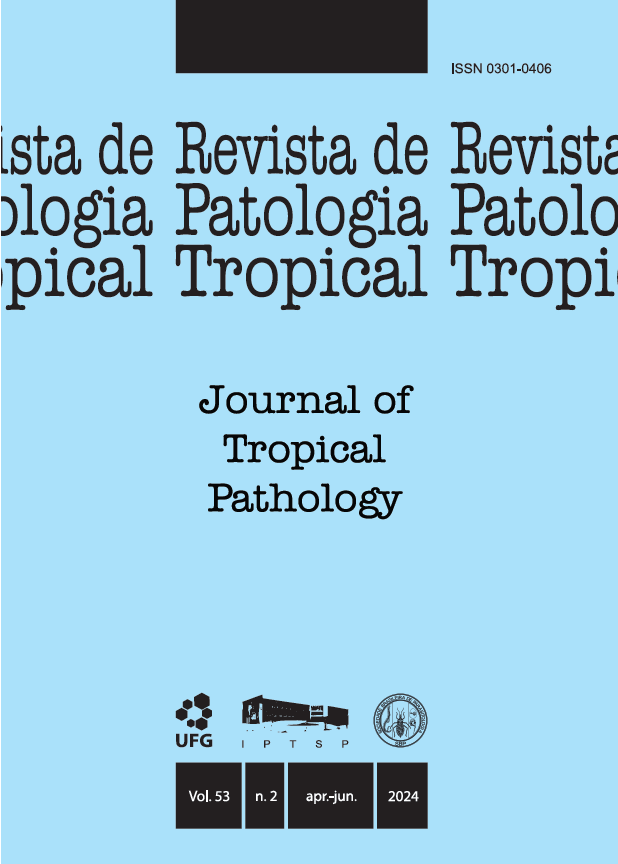Intestinal parasitic infections in patients with aids in northeast Brazil: an historical series from 2017 to 2022
DOI:
https://doi.org/10.5216/rpt.v53i2.79009Resumo
Opportunistic infections are a major cause of death in patients with acquired immunodeficiency syndrome (AIDS). Intestinal parasitic infections (IPIs) may aggravate the clinical condition of immunosuppressed patients and they may increase the risk of death. The goal of the present study was to determine the epidemiological profile of patients with AIDS and IPIs who visited a reference hospital for contagious diseases in Northeast Brazil from 2017 through 2022. It was an observational, transverse, descriptive, and analytical study. Medical records were assessed, epidemiological questionnaires were administered to identify risk factors for IPI, and coproparasitological examinations were performed to detect IPI. Of the 248 patients included in this study, 30.6% (76/ 248) tested positive for IPI. Entamoeba histolytica/ dispar (16.5%) and Strongyloides stercoralis (14.4%) were the most prevalent protozoa and helminths identified. Diarrheic consistency was observed in 25.8% of the feces samples, and mucus or blood were present in 19.4%. Analysis of the sociodemographic profiles of patients with IPIs showed that most were female, lived in small cities, earned up to two minimum wages, had an incomplete primary education, and were single. We conclude that to control parasite transmission in patients with HIV/AIDS, public policies related to human and environmental health, routine coproparasitological exams, and acceptance of antiretroviral therapy are necessary.
KEY WORDS: Acquired immunodeficiency syndrome; opportunistic infections; intestinal parasite infections; public health.
Downloads
Downloads
Publicado
Como Citar
Edição
Seção
Licença
The manuscript submission must be accompanied by a letter signed by all authors stating their full name and email address, confirming that the manuscript or part of it has not been published or is under consideration for publication elsewhere, and agreeing to transfer copyright in all media and formats for Journal of Tropical Pathology.

